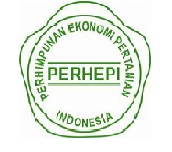Pengembangan Model Kemitraan Closed Loop Beras Organik Melalui Fasilitasi Petani Sanggar Rojolele di Desa Delanggu
Abstract
Developing a Closed Loop Partnership Model for Organic Rice through Farmer Facilitation at Rojolele Studio in Delanggu Village. Rojolele rice development often faces problems in quality and operations. The closed-loop partnership model is one solution through the integration of the supply and value chain ecosystem from upstream to downstream, which mutually benefits all parties, including farmer groups. The Community Partnership Program by the Sebelas Maret University Service Team was carried out to facilitate increasing the competency and partnership of Sanggar Rojolele Delanggu farmers by implementing good agricultural practices (GAP) for organic rice products standardized by the Organic Certification Institute in Indonesia. Purposes of service: (1) increasing the hard skills & soft skills of farmers in developing organic Rojolele rice, (2) increasing productivity and farmer income, as long as (3) guaranteeing market certainty with competitive prices. The implementation method is through: (1) extension and training of farmers in the form of experiential learning through demonstration plots of organic Rojolele rice, (2) mentoring of low input Rojolele rice cultivation based on organic farming, and (3) facilitation of marketing networks for organic Rojolele rice harvest products with off taker PT. WSS Indonesia refers to quality standards according to SNI. The results of extension, training, and facilitation for farmers show an increase in farmers' knowledge and skills in implementing GAP for organic rice products and an increase in market absorption of products at higher prices.
Keywords
Full Text:
PDF (Bahasa Indonesia)References
Al-Herwi, S. J. (2019). What are SMEs. In https://www.researchgate.net/institution/L ebanese_International_University. https://www.researchgate.net/institution/L ebanese_International_University
Badan Standardisasi Nasional. (2015). Standar Nasional Indonesia Beras SNI 6128:2015. BSN Indonesia.
Buttery, R.G., B. O., Juliano ., & Ling, L. C. (1983). Identification of rice aroma compound 2-acetyl-1-pyrroline in pandan leaves. Chemical Industries, 20(478).
Czy zewski, B., Wajda, A. P., Matuszczak, A., & Al., E. (2025). Exploring intentions to convert into organic farming in small-scale agriculture: Social embeddedness in extended theory of planned behaviour framework. Agricultural Systems. https://doi.org/https://doi.org/10.1016/j.agsy.2025.104294
Gamage, A., Gangahagedara, R., Gamage, J., et al. (2023). Role of organic farming for achieving sustainability in agriculture. Farming System. https://doi.org/https://doi.org/10.1016/j.far sys.2023.100005
Indrasari, S. D. A., Handoko, D. D., & Kusbiantoro, B. (2017). Komponen Volatil Beras Mentikwangi dan Rojolele serta Karakteristik Mutunya. Prosiding Seminar Nasional Dukungan Inovasi Teknologi Padi Untuk Mewujudkan Indonesia Sebagai Lumbung Pangan Dunia. Instruksi Presiden Republik Indonesia Nomor 3 Tahun 2012 Tentang Kebijakan Pengadaan Gabah/Beras Dan Penyaluran Beras Oleh Pemerintah, 997–1012.
Jahantab, M., Abbasi, B., & Bodic, P. L. (2023). Farmland allocation in the conversion from conventional to organic farming. European Journal of Operational Research. https://doi.org/https://doi.org/10.1016/j.ejo r.2023.05.019
Kusmiati, A., Ibanah, I., & Widjayanthi, L., et al. (2023). Pendampingan petani untuk mendorong perubahan menuju praktek pertanian berkelanjutan. Jurnal Pengabdian, 7(2), 501–512.
Mathure, S., Shaikh, A., Renuka, N., Wakte, K., Jawali, N., Thengane, R., & Nada, A.
Mohamed, E. ., Belal, A. ., Abd-Elmabod, S. ., El-Shirbenya, M. A., Gad, A., Zahran, & B, M. (2021). Smart farming for improving agricultural management. Egyptian Journal of Remote Sensing and Space Science. https://doi.org/https://doi.org/10.1016/j.ejr s.2021.08.007
Nurida, Evahelda, & Sitorus, R. (2024). Peran Penyuluh Pertanian Dalam Pendampingan Petani Milenial. Jurnal Penyuluhan, 20(1), 84–95.
Rahmi, W. (2024). Analytical Study of Experiential Learning : Experiential Learning Theory in Learning Activities. 5, 115–126. https://doi.org/10.62775/edukasia.v5i2.11 13
Rudyarti, E., Santosa, M. F. D., Octavia, D. J., & Amri, Y. (2021). Efektivitas pendampingan petani dalam meningkatkan keselamatan dan kesehatan kerja di desa sukaindah kecamatan sukakarya. Jurnal Pengabdian Masyarakat Berkemajuan, 5(1), 206–213.
Sekretariat Jenderal PVTPP Kementerian Pertanian. (2020). Perlindungan Varietas Tanaman. Berita resmi permohonan hak PVT Rojolele Srinuk Nomor Publikasi; 011/BR/PP/07/2020.
Tirtalistyani, R., Murtiningrum, & Kanwar, R. S. (2022). Indonesia Rice Irrigation System: Time for Innovation. Indonesia Rice Irrigation System: Time for Innovation, 14(1). https://doi.org/https://doi.org/10.3390/s u141912477
Tsuboi, T. (2012). Rice Diseases & Insects. Rice Technical Advisor Promotion of Rice Development (PRiDe) Project. JICA.
Verma, D. ., & Srivastav, P. . (2018). Extraction technology for rice volatile aroma compounds. In: Food Engineering Emerging Issues, Modeling, and Applications (eds.Meghwal, M., & Goyal, M. R.). In book series on Innovations in Agricultural and Biological Engineering. Apple Academic Press.
Yahya, S., Indrawati., Syam, H., & Abidin, Z. (2023). Pemberdayaan ekonomi masyarakat melalui pembuatan pupuk organik dan budidaya sayur organik. ETAM: Jurnal Pengabdian Kepada Masyarakat, 3(2), 289-295.
DOI: https://doi.org/10.20961/prima.v9i1.80384
Refbacks
- There are currently no refbacks.
View My Stats

This work is licensed under a Creative Commons Attribution-ShareAlike 4.0 International License.


.jpg)



1.jpg)











